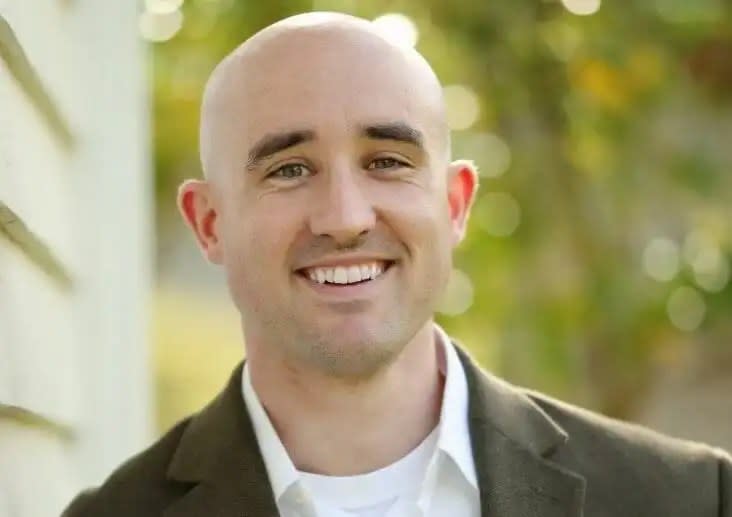What is the benefit of having a trust versus a will? We own our home, have a rental property and we have no debt. My husband and I are retired and both have IRAs, over $500,000 in the stock market and approximately $100,000 in CDs. We have three grown children – one is a stepchild. We currently have a will but are wondering if a trust is a better option.
– Judith
This is a good question that many people don’t stop to ask. Each has its purpose, and whether one of them is better for you – or if you should have both – is a matter of what you want to happen to your assets when you die.
Both a will and a trust can dictate the distribution of your assets, but there are key differences that might help guide your decision. There is much more to estate planning than the basics of wills and trusts, so I strongly recommend you consult with an estate planning professional for specific advice. (And if you’re looking for a financial advisor, consider finding one specifically with estate planning expertise.)
What Does a Will Do?
A will provides instructions to your heirs and the court for how to distribute any assets you have when you die and how you’d like your general affairs handled. For someone with minor children, you can also appoint a guardian through a will.
A key element is that your will takes effect upon your death. Wills, which are pretty simple and inexpensive to create, are a baseline document that everyone should have. If you don’t have a will, state law will dictate how to settle and distribute your estate. A will can make things much easier on your family. (And if you need help making a plan for your assets and eventual heirs, a financial advisor can potentially help.)
What Does a Trust Do?
Trusts are legal entities that hold assets to be managed by a trustee for the benefit of the beneficiaries. There are many different types of trusts.
A trust can also determine how your assets are distributed at death. However, it does not always require that you pass away to go into effect. Instead, a trust takes effect when you transfer ownership of your assets to it. This can happen before or after you die. You can even fund a trust and receive income from it while you’re still alive.
Trusts do not go through probate, the legal process by which a court validates your will. This means your estate will be distributed in private. It may also expedite the process.
Trusts can also provide you with more control over how and when your assets are distributed. Common examples here are if you want to spread distributions over many years or require your beneficiaries to achieve certain milestones before receiving an inheritance.
This could be very effective for ensuring your beneficiaries receive ongoing support or provide incentives for them to make responsible choices.
For you, this may be something to consider if you think you’ll leave any IRA balances to your kids. If they inherit them directly they’ll likely fall under the 10-year rule, meaning they’ll have to withdraw all the money within 10 years. You may set up a trust to name as the IRA beneficiary, which could then distribute the assets to your children.
Additionally, trusts can reduce the size of your taxable estate and help you avoid paying estate taxes. However, the vast majority of people won’t be subject to estate tax liability, considering this federal levy only applies to estates valued at $12.92 million in 2023 ($25.84 million for married couples). Given your assets, it doesn’t seem like you would be subject to estate taxes. (A financial advisor with estate planning expertise may be able to help you set up a trust or make additional plans for your estate.)
What About Account Beneficiaries?
A simple but important note to be aware of is that any accounts with named beneficiaries will transfer to those beneficiaries regardless of what your other documents say.
This is why it’s very important to review your beneficiary designations periodically, particularly with blended families. Since there is a stepchild in your case, you may want to make sure that your beneficiary designations include (or not include) your stepchild the way you and your husband intend to.
Bottom Line
Everyone should have a will, but some may want or need a trust as well. As with most financial planning decisions, it comes down to your own goals and priorities. If you want additional privacy or would like to set more specific parameters around the distribution of your estate, a trust may be a good addition to your estate plan.
Tips for Finding a Financial Advisor
Finding a financial advisor doesn’t have to be hard. SmartAsset’s free tool matches you with up to three vetted financial advisors who serve your area, and you can have free introductory calls with your advisor matches to decide which one you feel is right for you. If you’re ready to find an advisor who can help you achieve your financial goals, get started now.
Consider a few advisors before settling on one. It’s important to make sure you find someone you trust to manage your money. As you consider your options, these are the questions you should ask an advisor to ensure you make the right choice.
Keep an emergency fund on hand in case you run into unexpected expenses. An emergency fund should be liquid -- in an account that isn't at risk of significant fluctuation like the stock market. The tradeoff is that the value of liquid cash can be eroded by inflation. But a high-interest account allows you to earn compound interest. Compare savings accounts from these banks.
Are you a financial advisor looking to grow your business? SmartAsset AMP helps advisors connect with leads and offers marketing automation solutions so you can spend more time making conversions. Learn more about SmartAsset AMP.
Brandon Renfro, CFP®, is a SmartAsset financial planning columnist and answers reader questions on personal finance and tax topics. Got a question you’d like answered? Email AskAnAdvisor@smartasset.com and your question may be answered in a future column.
Please note that Brandon is not a participant in the SmartAsset AMP platform, nor is he an employee of SmartAsset. He was compensated for this article.
Photo credit: ©iStock.com/shapecharge, ©iStock.com/kate_sept2004
The post Ask an Advisor: What’s the Benefit of Having a Trust vs. Will? We Own 2 Homes, Have IRAs and Another $600k in Assets appeared first on SmartReads by SmartAsset.


